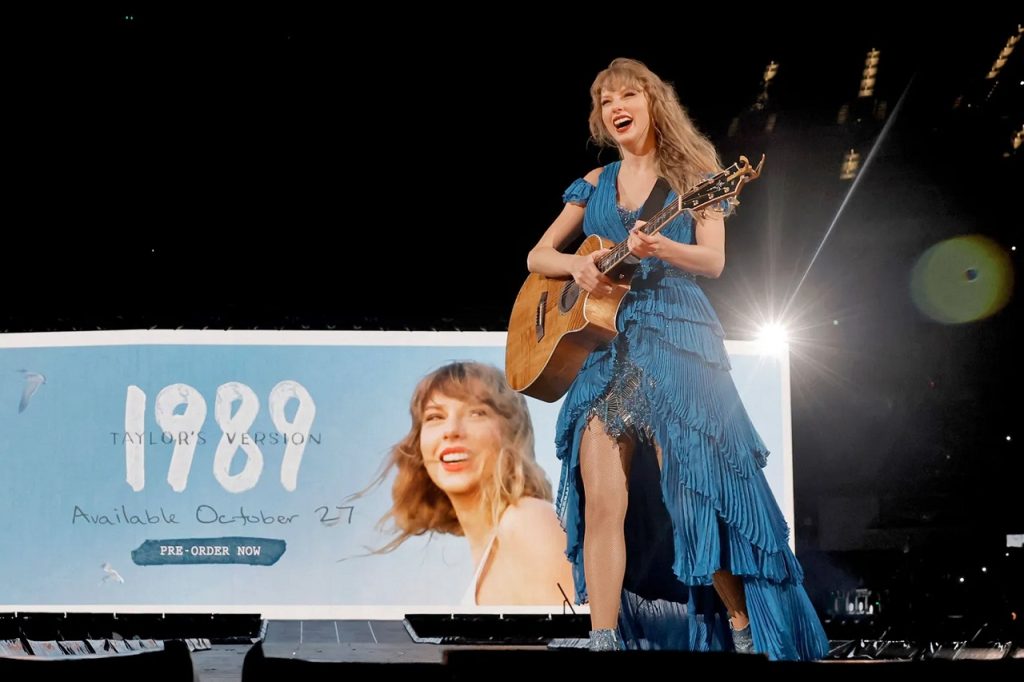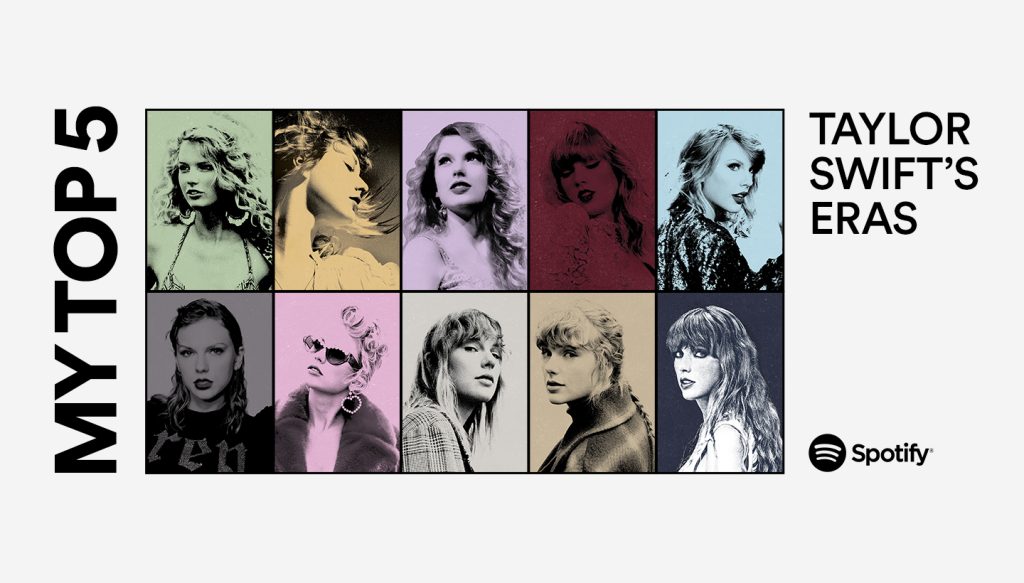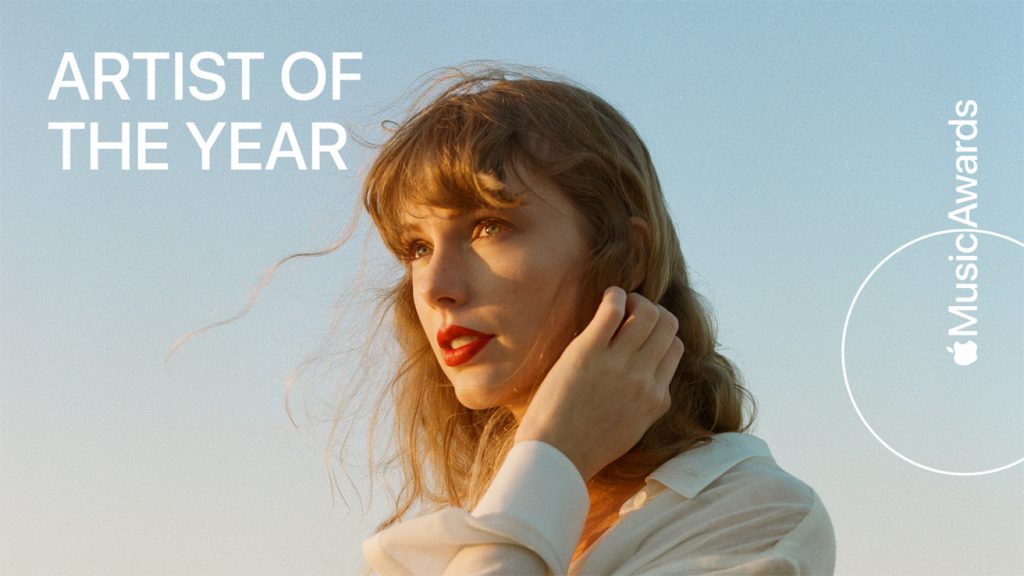At Soundiiz, we love talking about streaming. We LOVE it. But we also love looking back at its rich history, evoking important events and radical changes. Ten years ago in 2014, a small earthquake shook the music world. Taylor Swift’s war against music streaming had many consequences, and nothing would ever be the same again. We take our time machine and tell you all about it!

The backstory: how it all began
On October 27, 2014, Taylor Swift was on everyone’s lips. Her new album, 1989, has just been released, and her songs are being sung and played worldwide. All over the world? Well, not quite. Spotify, one of the leading streaming platforms, doesn’t offer it in its catalog. The reasons for this remain unclear.
But it’s worth remembering that a few months earlier, before the release of 1989, Taylor Swift had spoken out in the columns of the Wall Street Journal, stating without really saying it in black and white that she didn’t appreciate this new streaming economy, and saying she was worried about the rise of piracy. Above all, she insisted that artistic creation should be valued and remunerated fairly. Music shouldn’t be free,” she asserted. It’s hard to argue with her. 2014, music streaming is still a developing phenomenon but is gaining momentum.

Within the music industry, everyone is preparing for the music business to be turned upside down.
Taylor Swift and Spotify: an ongoing feud
The absence of 1989 is the talk of the town, and fans are getting impatient. Spotify is forced to issue a statement claiming that this is due to the artist’s will while promising they are working on resolving the problem. As for Taylor Swift, the opposite was true. The singer withdrew her entire catalog from Spotify so no Spotify user could listen to her music. The conflict escalated, and Taylor Swift stuck to her guns. Her music can still be heard on TIDAL and Rhapsody.
In November 2014, Taylor Swift spoke out about the affair. She explained that she had decided to do without Spotify to protest against a streaming system that doesn’t pay artists what they’re worth and almost makes art seem like something that can be systematically consumed for free.

Spotify co-founder Daniel Ek counters with figures contradicting Taylor Swift’s claims, and then the singer’s label refutes these statistics with other figures. Nobody knows who’s right anymore, and in the meantime, 1989 is still unavailable for listening on Spotify, and it will be some time before it is made available.
Spotify isn’t the only platform to have suffered the wrath of Taylor Swift: Apple Music has also been the victim of a few attacks.
Taylor Swift’s war against Apple Music
In June 2015, Taylor Swift took up another battle. She took offense that Apple Music had not decided, when it launched its music streaming service on June 8, 2015, to pay artists if their songs were listened to during the three-month trial offered to every user. Taylor Swift is in the middle of a world tour to promote her album 1989.
She posts a message on her Tumblr – a name that might not mean anything to the youngest among you, we realize – and expresses her shock and disappointment at the Apple company’s maneuvers.

She threatened not to release her colossally successful new album, 1989, on Apple Music. It would have definite consequences for Apple Music’s popularity and ability to offer users almost all the music available worldwide. At the time, 1989 was one of the most popular albums in the country, and Taylor Swift had a lot of clout.
Lesser-known labels and artists were also trying to sway the scales in the artists’ favor. But Taylor Swift has a voice that carries, and she finally broke Apple’s back. One of the executives, Eddy Cue, tweeted that Apple would indeed pay artists during the Apple Music trial period.
The consequences of Taylor Swift’s War against music streaming
Taylor Swift has opened a debate that continues to rage. It’s no secret that artists are far from satisfied with their remuneration on streaming platforms. So, for a singer of Taylor Swift’s popularity and influence to take up the subject was powerful. And symbolic. But has it changed anything?
Artists can hardly do without streaming to distribute their music. Platforms have become too important to be ignored. There are, however, regular initiatives, such as the increasingly important role played by Bandcamp or the willingness of certain artists to distribute their music only in CD or vinyl format. But with rare exceptions, all these initiatives come from artists who are not superstars and whose media influence is unfortunately limited.

Taylor Swift’s fight has had positive repercussions. As we said, streams are counted even during trial periods and in free subscriptions. But there is still a long way to go towards a fairer streaming revenue distribution. This is the thrust of recent initiatives by Deezer and Universal Music, discussed in detail in this article.
In any case, Taylor Swift’s battle has shown that artists do not remain passive when protecting their art and the remuneration that goes with it. It’s a safe bet that other battles based on the same issues will emerge in the years and decades to come.
And Soundiiz will be there to tell you all about it!



